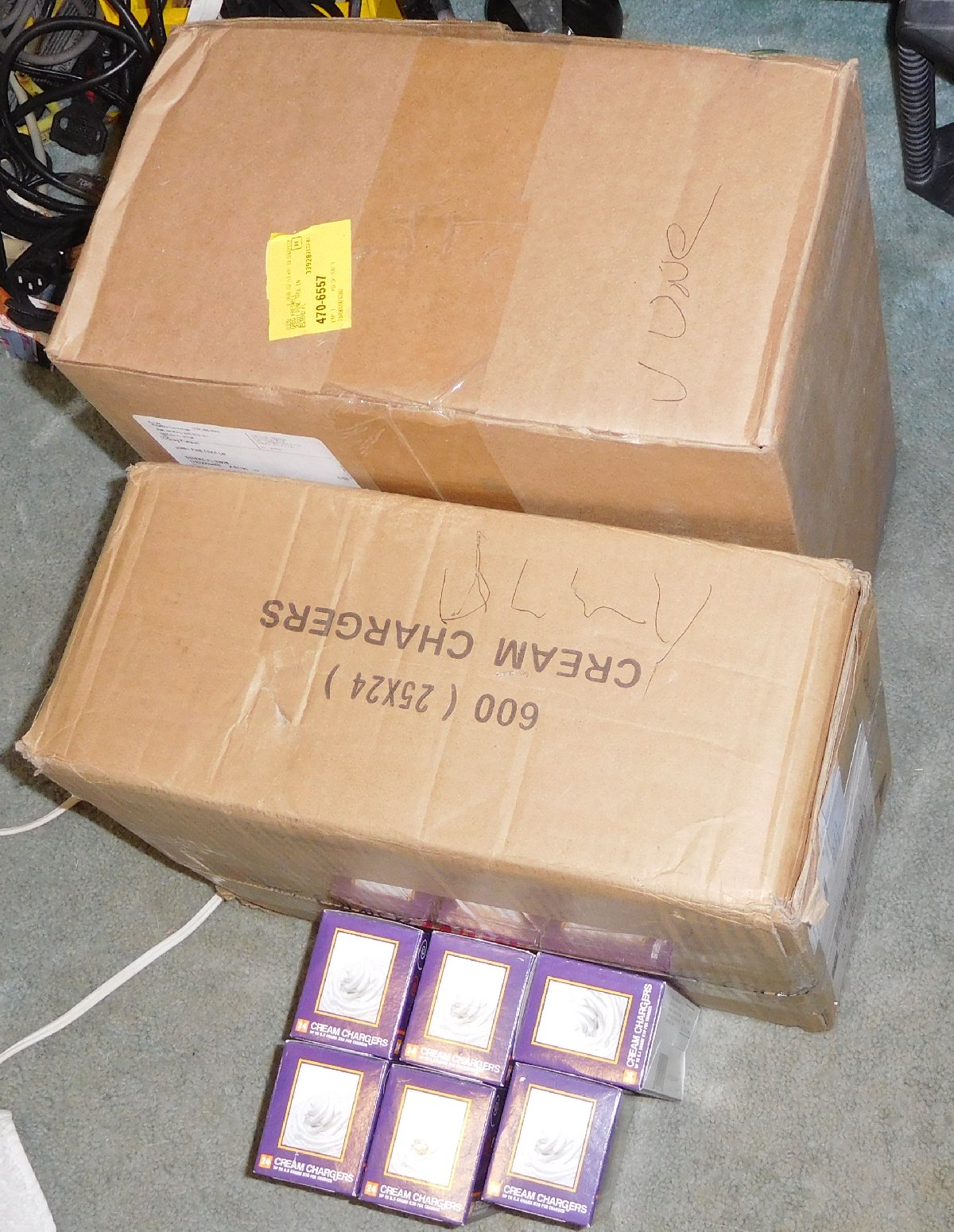Gary White
Bluelighter
- Joined
- Oct 8, 2019
- Messages
- 256
Yes that is an ongoing project. I did take the survey
Well @Gary White, you completely sabotaged the whipped cream canister’s integrity when you drilled the hole in the bottom for the O2 input tubing.
What’re you going to do the next time you need to decorate a fancy dessert?

Damn! There’s no way I could keep up with you!This is more like a party

What a great number of responses! I know all about data analysis so I wish you good luck! Haha!Hi, thank you for checking in!
We're in the last 10 days of data collection and not far from reaching 700 responses on the survey! The next months will be about data analysis. I really look forward to reading the qualitative paragraphs in particular.
Can you explain what you mean by that? I wish I read your message earlier, you might not recall since May!(as in they have very little clue outside of clinical effects or get small details about drugs wrong).
Take B12 yeah?This is more like a party

Can you explain what you mean by that? I wish I read your message earlier, you might not recall since May!
Oh my god that feels so good to read! Thank you. Yes it bugs be immensely when the researchers take a patronizing standpoint relative to their participants (a disgusting example is this paper https://pubmed.ncbi.nlm.nih.gov/29403400/). I have tried many drugs and am very fond of NOS so I put a lot of care in designing the survey and I'm glad you appreciated.I've got a few aspects.
First the language used around other research chemicals was correct (and pretty inclusive of most classes). Nothing bugs me when more than when an institutional study makes errors such as classifying ketamine as a psychadelic or grouping compounds with fundamentally diverse mechanisms of action and effects.
Second, I feel drug studies can often over emphasize the bad of drugs. (not that there isnt a lot of bad, but when it feels like sampling is biased I kind of get turned off). For example there was one recently (past 6 months I guess isn't that recent) I won't name, that was asking about effects from drug use. Many of these questions were about side effect profiles of drugs, and then would be followed by questions asking if you still continued a pattern of use despite them.
I feel for a lot of hallucinogenic drugs, there are quite a large amount of unpleasant side effects that are very transient, and totally worth tolerating for some of the more interesting effects of the drug. This study didn't really separate out long and short term effects, so I felt like I was painting a picture of being a total acid casualty, when these effects were more of a trade off of the experience.
Finally the study went beyond justusing questions pulled from the dissociative experiences scale (although those questions were still kind of obvious imo). It appeared that there was input from users, as many questions captured very specific aspects of the nitrous experience. I appreciate the care taken to make the study precise in that way.
WHIPPETS in good old days for lots of laughs but that no longer exists because Miracle Whip was long ago replacing NO2 after the secret got out. So back in late 90s Medical NO2 or Nitrous was popular. Hard to come by but you had those who seem to get some. Sure the Industrial Small tanks used but got to get Medical stuff is only thing does the Magic...Laughs and more Laughing gas!Hello!
I'm looking to recruit people for a survey investigating the phenomenology of nitrous oxide (or what nitrous oxide feels like). I am interested in exploring individual differences in the response, and seeing if they can be predicted with baseline measures (set & setting, but also trait variables).
The survey can be found by clicking here: https://goldpsych.eu.qualtrics.com/jfe/form/SV_5hzF8cAuO80jzuZ.
It takes around 40 minutes to complete, and participation is not compensated.
This study began on the 11th January 2021 and will run until 11th July 2021, or until we have reached our goal sample size of 1000 participants.
It's open to English speakers who are at least 18 and who have used nitrous oxide in the last month.
You can read the information sheet of the study for more details by following the link.
The study has been approved by the Goldsmiths University Ethics Committee.
We are Ondine Cami Delaye, Azelie Koffi, Devin Terhune, Simon Ruffell and David Luke (from Goldsmiths University, the Maudsley and Greenwich University in London). This is part of my PhD on the phenomenology of nitrous oxide.
I can be contacted at [email protected], [email protected] or via the Bluelight private messaging system.
Cheers,
Cami
